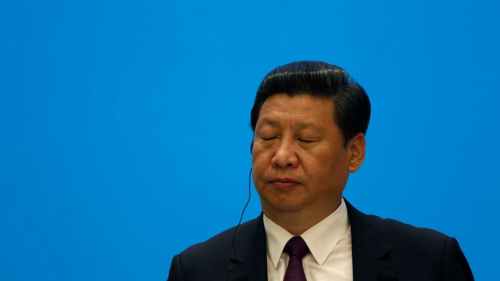The Quad Vaccine Partnership
While ensuring that vaccines have been made available to our people, “Quad” partners will launch a landmark partnership to further accelerate the end of the COVID-19 pandemic. Together, Quad leaders are taking shared action necessary to expand safe and effective COVID-19 vaccine manufacturing in 2021, and will work together to strengthen and assist countries in the Indo-Pacific with vaccination, in close coordination with the existing relevant multilateral mechanisms including WHO and COVAX.
- Drawing on each of our strengths, we will tackle this complex issue with multi-sectoral cooperation across many stages of action, starting with ensuring global availability of safe and effective vaccines.
- Quad partners are working collaboratively to achieve expanded manufacturing of safe and effective COVID-19 vaccines at facilities in India, prioritizing increased capacity for vaccines authorized by Stringent Regulatory Authorities (SRA). Quad partners will address financing and logistical demands for production, procurement, and delivery of safe and effective vaccines. Quad partners will work to use our shared tools and expertise, through mechanisms at institutions including the United States Development Finance Corporation (DFC), Japan International Cooperation Agency (JICA), and, as appropriate, Japan Bank of International Cooperation (JBIC), as well as others.
- The United States, through the DFC, will work with Biological E Ltd., to finance increased capacity to support Biological E’s effort to produce at least 1 billion doses of COVID-19 vaccines by the end of 2022 with Stringent Regulatory Authorization (SRA) and/or World Health Organization (WHO) Emergency Use Listing (EUL), including the Johnson & Johnson vaccine.
- Japan, through JICA, is in discussions to provide concessional yen loans for the Government of India to expand manufacturing for COVID-19 vaccines for export, with a priority on producing vaccines that have received authorization from WHO Emergency Use Listing (EUL) or Stringent Regulatory Authorities.
- Quad partners will ensure expanded manufacturing will be exported for global benefit, to be procured through key multilateral initiatives, such as COVAX, that provide life-saving vaccines for low-income countries, and by countries in need.
- Quad partners will also cooperate to strengthen “last-mile” vaccination, building on existing health-security and development programs, and across our governments to coordinate and strengthen our programs in the Indo-Pacific.
- This includes supporting countries with vaccine readiness and delivery, vaccine procurement, health workforce preparedness, responses to vaccine misinformation, community engagement, immunization capacity, and more.
- Australia will contribute US$77 million for the provision of vaccines and “last-mile” delivery support with a focus on Southeast Asia, in addition to its existing commitment of US$407 million for regional vaccine access and health security which will provide full vaccine coverage to nine Pacific Island countries and Timor-Leste, and support procurement, prepare for vaccine delivery, and strengthen health systems in Southeast Asia.
- Japan will assist vaccination programs of developing countries such as the purchase of vaccines and cold-chain support including through provision of grant aid of $41 million and new concessional yen loans, ensuring alignment with and support of COVAX.
- The United States will leverage existing programs to further boost vaccination capability, drawing on at least $100 million in regional efforts focused on immunization.
- Our commitment will be implemented by the launch of a senior-level Quad Vaccine Experts Group, comprised of top scientists and officials from our governments. This group will support Quad cooperation in the long term, and use science and evidence to:
- design an implementation plan for the Quad COVID-19 vaccine effort;
- identify hurdles impeding vaccine administration in the region;
- work with financers and production facilities to monitor timely and sufficient capacity expansion that will lead to wider distribution of safe and effective vaccines;
- share governmental plans to support Indo-Pacific health security and COVID-19 response, and identify practical cooperation on “last-mile” delivery for hard-to-reach communities in need;
- strengthen and support the life-saving work of international organizations, including the WHO, COVAX, Gavi, CEPI, UNICEF, the G7, ASEAN, and governments, and call on other countries to do the same;
- make additional concrete recommendations before the end of the year.
The Quad Climate Working Group
We have identified the climate challenge as a priority for the Quad and the Indo-Pacific region. We will establish a new Quad Climate Working Group focused on:
- Cooperation, both among ourselves and with other countries, to strengthen implementation of the Paris Agreement, including to keep a Paris-aligned temperature limit within reach;
- Working together and with other countries to support, strengthen, and enhance actions globally;
- Committing to advancing low-emissions technology solutions to support emissions reduction;
- Cooperation on climate mitigation, adaptation, resilience, technology, capacity-building, and climate finance.
The Quad Critical and Emerging Technology Working Group
Quad leaders recognize that a free, open, inclusive, and resilient Indo-Pacific requires that critical and emerging technology is governed and operates according to shared interests and values. In that spirit, we will convene a Critical and Emerging Technology Working Group, which will:
- Develop a statement of principles on technology design, development, and use;
- Facilitate coordination on technology standards development, including between our national technology standards bodies and working with a broad range of partners;
- Encourage cooperation on telecommunications deployment, diversification of equipment suppliers, and future telecommunications, including through close cooperation with our private sectors and industry;
- Facilitate cooperation to monitor trends and opportunities related to developments in critical and emerging technology, including biotechnology;
- Convene dialogues on critical technology supply chains.
###




